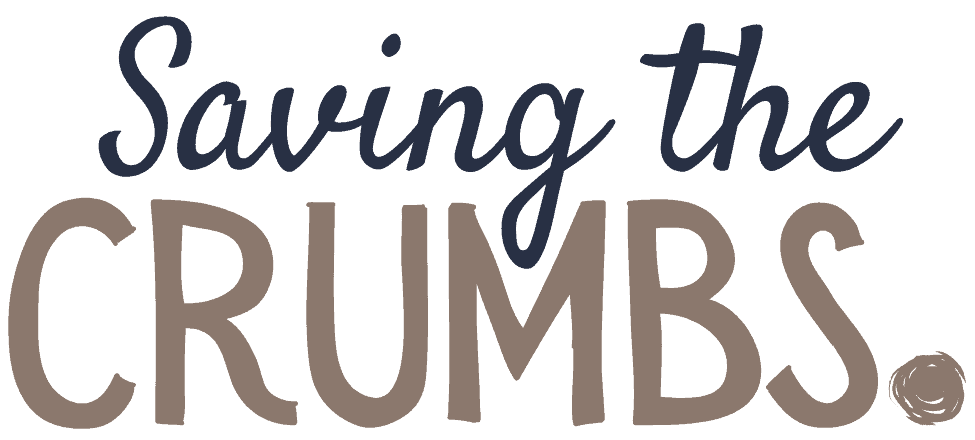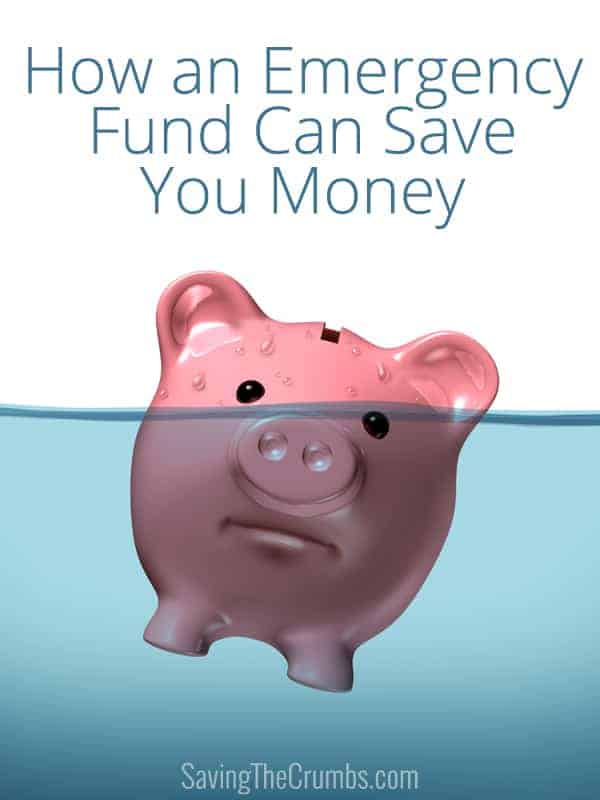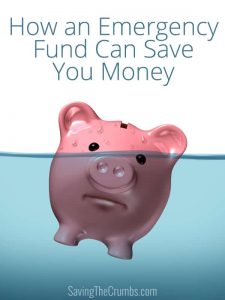You’ve probably heard of the “emergency fund”. It goes by many names: Rainy Day Fund, Pennies in the Cookie Jar, Stash in the Mattress, or the good ol’ Piggy Bank. The concept may seem like a throwback to our grandparents’ era, before such sophisticated conveniences like credit cards, but deep down we all know it’s probably a good idea to have an emergency crumb-stash.
The generally accepted rule of thumb for how much to save in an emergency fund is 3-6 months of living expenses, and up to 9-12 months for those with irregular incomes. (Notice we said living expenses and NOT income. The assumption is that your living expenses are lower than your income…if that’s not the case for you, then you’ve got a big problem!) The idea is that this fund can sustain you and your family for a few months if you lose your job, allowing you time to search for a new job without the need to go into debt. This is especially true if you don’t have unemployment benefits. It’s also the stash that you can tap into if sudden, unexpected misfortunes happen to come your way—basement gets flooded and you need to call a plumber, your refrigerator goes up in smoke and you need a new one, your tires blow out and you need to replace them, etc. etc.
But a well-stocked emergency fund can help the wise crumb-saver in many more ways than these. In fact, an emergency fund is useful to help you save a lot of money—even if you never use one dime of it. How? The short answer is that it reduces risk. Here’s a more thorough explanation.
The Best Insurance is Self-insurance
Why do we pay hundreds and thousands of dollars for insurance for our homes, cars, and all that other stuff? We do it to shift the risk of major loss to the insurance company. But suppose we had unlimited money, there would be no need to buy insurance. We could just replace whatever we lost by buying another one, and it wouldn’t impact our financial security in the slightest. Of course, most of us can’t afford that and so we make small, regular payments to an institution in exchange for the protection they give us in the event of loss. Just think though, by having a healthy emergency fund, we can sustain a much higher level of loss before the need of a 3rd party to insure our stuff.
Let’s make this practical by considering a real-life scenario. Suppose I am driving an old junker of a car that’s worth $1200 and I have $0 in savings. In fact, I’m drowning in student loan and credit card debt, but I absolutely need this car in order to get to work each day. If my car dies on me, I will be in serious trouble. I would have lost my only means to get to work, plus now I’ll get behind on my payments. If I were uninsured in this situation, the only apparent option would be to borrow money and buy a replacement car—which unfortunately sets me up for the death spiral of compounding debt.
So to mitigate the risk of something like this happening, I might buy full coverage insurance on my vehicle. That means the insurance company will either repair or replace the vehicle in case of accident. So in this fictional example, I might have to pay something like $90 a month to fully cover my $1200 car. If you do the math, that turns out to be $1080 of insurance premiums per year. So in order to compensate for the risk of losing my vehicle, I am essentially paying the full value of the vehicle EACH YEAR to the insurance company! That’s a terrible, horrible, absolutely no-good deal! But we’ve already discussed the alternative if I didn’t have full comprehensive/collision coverage, and so it seems like we’re stuck with two awful options!
This is where an emergency fund comes in handy. By having a healthy stash of cash available, I will not need to buy full coverage on my junky car. I’ll only need to buy the legally mandated liability coverage for the car (that’s the part that’ll get you bankrupt if you don’t have it), and forego the comprehensive/collision coverage because I can self-insure that part. (Meaning, I can just replace the car myself.) That’ll probably bring my monthly premium down to $20-30 per month, which amounts to $720-840 in annual savings. No chump change!
Of course, this situation will vary depending on the value of your vehicle (yet another excellent reason to buy your car used), but the fact is that even if there IS comprehensive/collision coverage, an emergency fund will allow anyone to increase their deductibles and thereby lower their monthly premiums. You’ve reduced your risk AND saved money by becoming your own insurance company.
You can apply this same line of thinking on the deductible of your homeowners insurance. Raise the deductible as high as you can comfortably cover with your emergency fund, and you’ll reap the benefits of much lower premiums.
Can An Emergency Fund Help Me Quit My Job?
A lot of people hate their jobs but are afraid to quit because they fear losing their health insurance. It’s true that most group insurance policies offered through employers are much more comprehensive than private health insurance, but having a well-stocked emergency fund can make private health insurance a lot more viable for many people.
If you have a solid emergency fund, you are in a position to consider a much lower-cost high-deductible health insurance plan. For example, on the Healthcare.gov site, a family of 2 in Tennessee with no subsidies can get a $0 deductible plan for about $900/month, whereas a $8000 deductible plan* can be had for around $300/month. That’s a $7200 annual difference! Of course, the amounts will be vastly different depending on the subsidies that you qualify for, but the point is simply that if you have a good emergency fund stashed away, you can cover yourself up to a much higher degree so you will need to pay the minimum for insurance to cover the major catastrophes that might bankrupt you.
Who knows? Having that money saved up just might be the ticket for you to walk away from your employer health insurance plan with no fear.
Conquering Fear
Speaking of fear, isn’t that why we spend so much money for insurance in the first place? Why we pay full coverage for a car? Why we buy expensive health insurance that covers every little thing? Why we pay extra for extended warranties on phones, computers, appliances, and toys? It’s all because of the fear of loss.
The problem is that fear never helps us make good decisions—especially financial ones.
Perhaps the single greatest benefit of an emergency fund is that it can help us conquer our fears. An emergency fund is basically a giant sponge to sop up the many messes that come up in life. It’s the safety net we set up for ourselves to prevent a nasty tumble. It allows us to have a margin of safety in an uncertain world so a small (or large!) hiccup won’t send us into a financial tailspin. This sense of security ought to change how we think. Namely, it should allow us to comfortably say “No” to unnecessarily expensive insurances and warranties. We should’t feel guilt-tripped about being irresponsible by high-pressure insurance salespeople. We don’t have to worry as much about what will happen if things go wrong, we’ve made provisions to handle it, and that means we don’t need to pay our hard-earned money to other people just to buy our peace of mind.
Feel insecure about your future? Fearful about potential catastrophes? Hate paying so much for insurance? Starting your emergency fund just might be the answer. (If you’re ready to start one but are not sure where, consider the two online banks that we use. They are FDIC insured and have the highest interest rates around.)
What do you think? What are some other reasons why we ought to have an emergency fund? How else can they help us save the crumbs?
*The extra bonus is that with a high-deductible plan, you’ll qualify for a Health Savings Account (HSA) which is probably one of the most tax-advantaged types of accounts known to man. It’s pretty awesome if you qualify, check out our post on HSAs to find out more.







